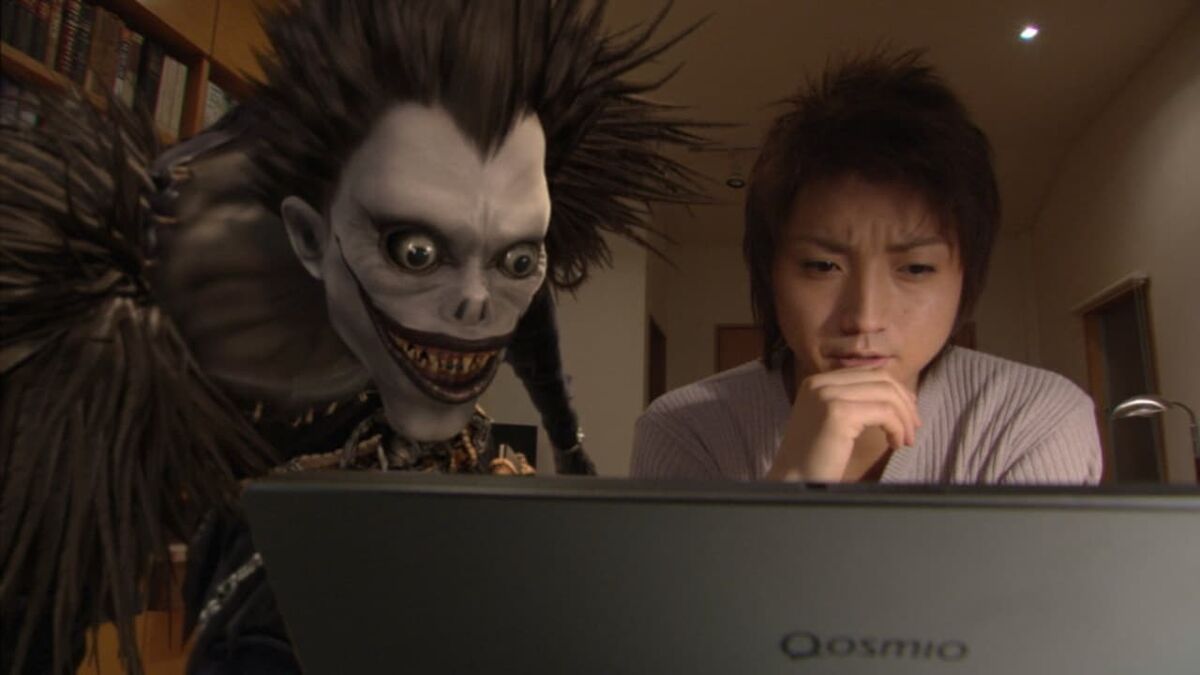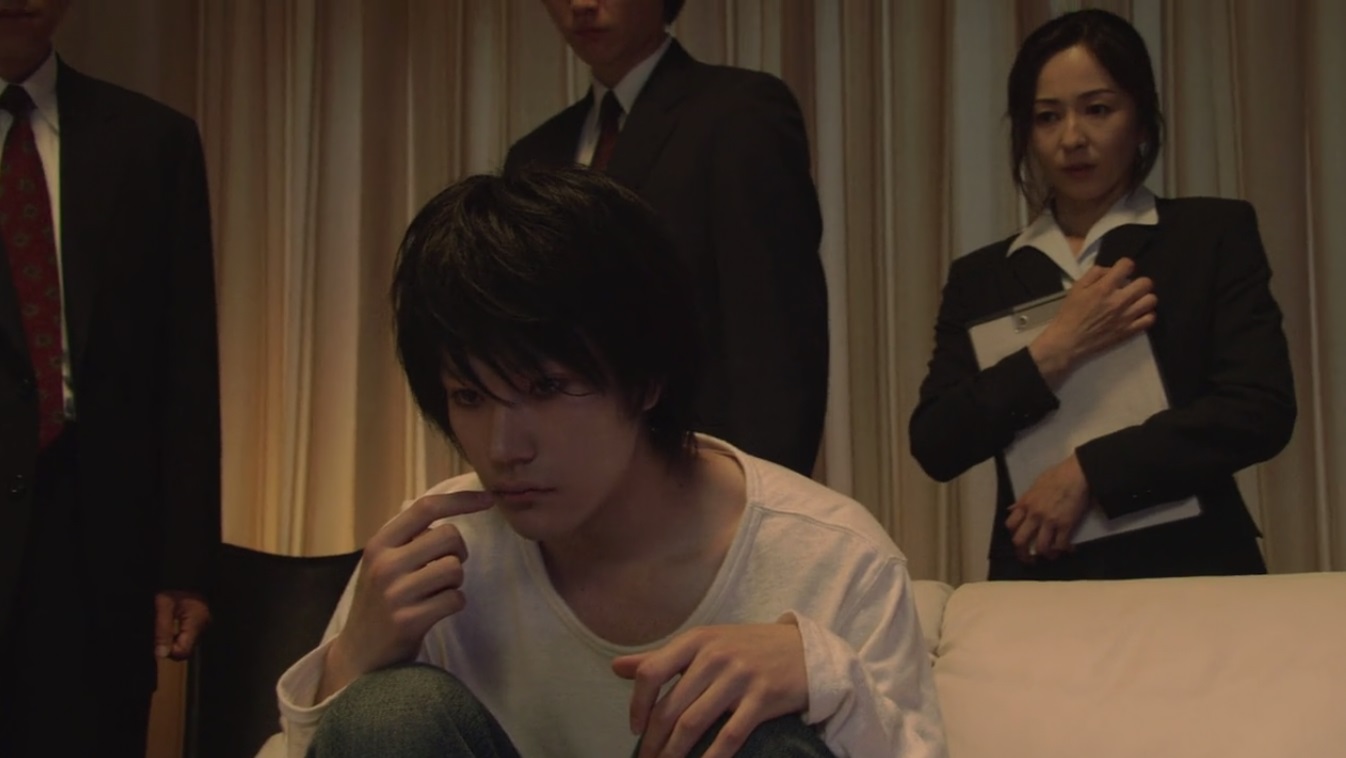Death Note (2006): A Dark and Thought-Provoking Adaptation of a Beloved Manga
Death Note is a 2006 Japanese psychological thriller film directed by Shusuke Kaneko, adapted from the immensely popular manga and anime series created by Tsugumi Ohba and Takeshi Obata. The film captures the essence of the original story, exploring complex themes of justice, morality, and the corrupting influence of power through a suspenseful and gripping narrative.
The plot revolves around Light Yagami, portrayed by Tatsuya Fujiwara, a highly intelligent high school student who stumbles upon a mysterious notebook known as the “Death Note.” This supernatural book grants its user the power to kill anyone simply by writing their name while picturing their face. Light, frustrated with the rampant crime and corruption in society, decides to use the Death Note to eliminate criminals and create a new world where he reigns as a god-like figure. However, his actions quickly attract the attention of law enforcement agencies worldwide, as well as a mysterious and brilliant detective known only as “L,” played by Kenichi Matsuyama.

The film delves deep into the psychological battle between Light and L, showcasing their strategic mind games and moral conflicts. Light’s descent into a dark and obsessive pursuit of his vision of justice is contrasted with L’s unwavering commitment to stopping him. The tension between these two characters drives the narrative, keeping viewers on edge as they try to anticipate each other’s moves.
Death Note effectively captures the eerie and suspenseful atmosphere of the manga, using stark cinematography and a moody color palette to emphasize the story’s dark themes. The supernatural elements, particularly the character of Ryuk—the Shinigami or death god who originally dropped the notebook into the human world—are portrayed with a mix of eerie special effects and unsettling presence, adding to the film’s ominous tone.

The performances of the lead actors stand out, with Tatsuya Fujiwara delivering a chilling portrayal of Light’s transformation from an idealistic student to a ruthless vigilante. Kenichi Matsuyama’s portrayal of L is equally compelling, capturing the detective’s eccentricity and intense intellect. Their on-screen rivalry is one of the film’s most engaging aspects, highlighting the psychological depth of the story.
While Death Note condenses the complex plot of the original manga, it successfully presents the core moral dilemmas and philosophical questions about justice, power, and the consequences of playing god. Some fans of the manga noted that certain plot details and character developments were simplified or omitted, but the film’s pace and dramatic intensity make it accessible to new audiences as well.

In conclusion, Death Note (2006) is a well-crafted psychological thriller that brings a beloved manga to life with compelling performances, dark visuals, and thought-provoking themes. It remains a significant entry in the genre of live-action adaptations of anime and manga, appealing both to fans of the original work and those interested in stories that challenge notions of right and wrong through suspense and moral complexity.


